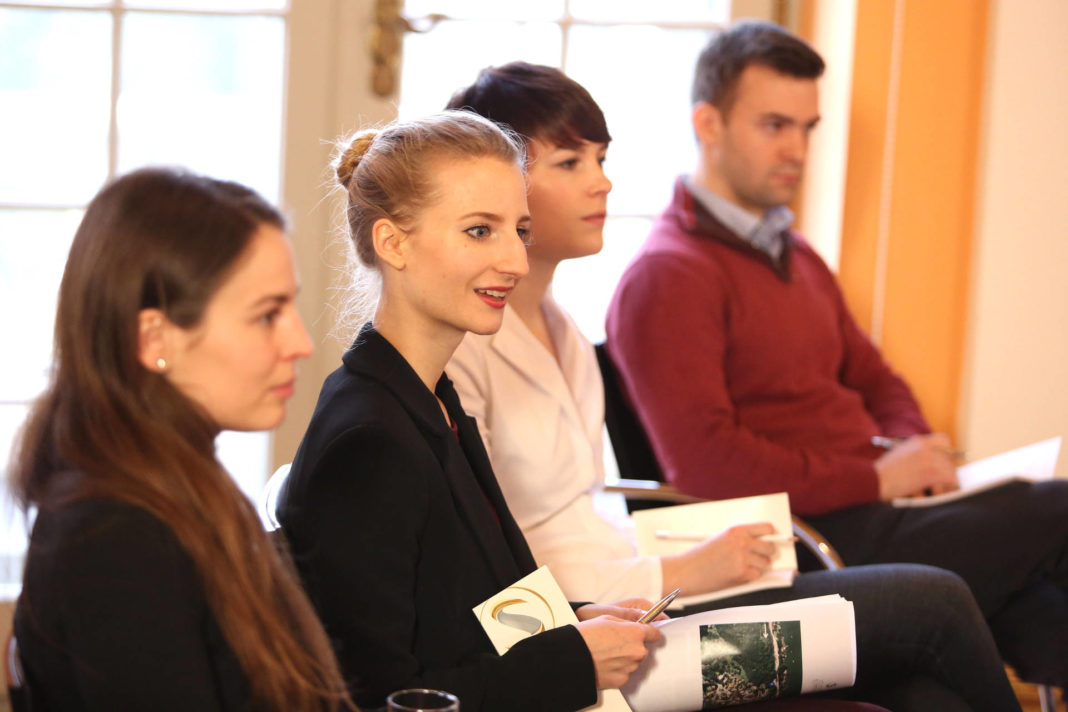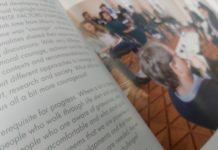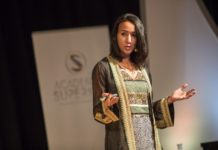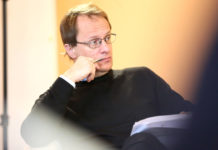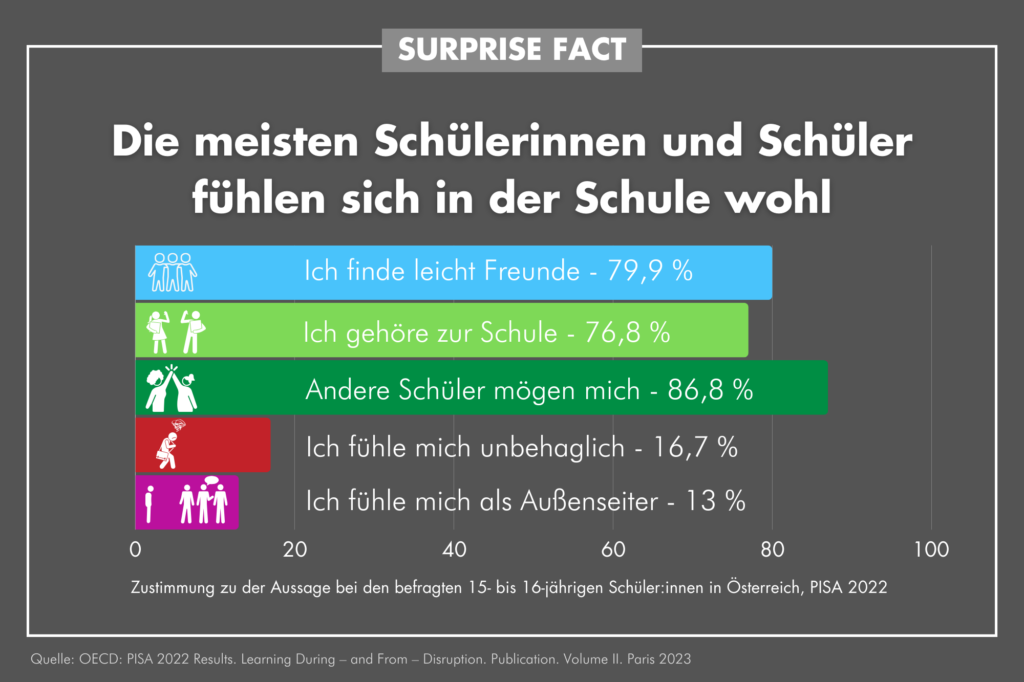Already prior to the SURPRISE FACTORS SYMPOSIUM, students from various disciplines and universities dealt with this year’s topic at a one-day workshop. Four of them joined the discussions at the SYMPOSIUM as our YOUNG ACADEMIA and offered their young generation’s perspectives.
Freedom starts in the mind and requires courage
What is freedom? There is no universal definition for freedom. Freedom took the liberty of being diverse and every human experiences freedom differently. For us, freedom starts in the mind. We are all prisoners of our spiritual and physical capacities. But no matter what happens, nobody can take the freedom to think away from us. Freedom means breaking down new borders again and again and to not be blocked by one’s own fears. It takes courage to be free and power to stand up for it.
Freedom means different things to different people, that’s why you can only discover and live out your freedom once you have found yourself and your way. Only this will give you strength and self-esteem. This was evident in our discussions in Gmunden. However, we all agreed on one thing from the beginning: Freedom is a precious asset and freedom is in strong contrast to prohibition and coercion.
Freedom thinks for others, too Freedom is a human right, it is a requirement originating in the nature of mankind and is revoked from the possible arbitrariness of human governments. Freedom of this kind, however, is not one of individuals enjoying their respective freedom in isolation.
It always means communication, too, and responsibility towards fellow human beings. As individuals and as citizens humans are determined to be free, or quoting Jean-Paul Sartre, even condemned to be so. It all is about individualism and personal freedom as well as about existential and political freedom. “Freedom is the soul’s right to breathe.” Wolf Wondratschek stated that inner freedom was strongly dependent on the cultural background one comes from.
The Bedouin and western people’s understanding of freedom is fundamentally different. It nevertheless remains the same for all, freedom is one of the most fundamental assets representing the least common denominator of the European Union and even of our world. This is the asset which unifies us all.
Are we trampling our freedom underfoot?
Freedom is precious and yet, we very often trample it underfoot. When Uffe Elbæk raised the question of whether the younger generation takes freedom for granted, we could only reply that it is not only the younger generation, but also the older one which takes freedom for granted. In most cases, people see much more importance in safeguarding their material possessions than their freedom. Many are willing to give up their freedom for their possessions. The fear of losing material things is much higher than of losing one’s freedom – an observation which makes us all very reflective.
Fear fuels the opposite of freedom
In the last months we have seen how more and more people around us got scared about moving freely and safely in public spaces. The freedom of feeling safe is increasingly threatened by this diffuse fear whose social impact we cannot yet foresee, however, it increasingly divides our population. Society increasingly allows itself to be divided by the refugee crisis, it is willing to give itself up because of it and establish fences. Incresingly the feeling arises that you have to decide which side you are on.
„For our generation, freedom has become taken for granted.”
This is not our vision of freedom. Since to us, freedom also means not being put in a drawer and needing to stay in there, but to be allowed to be oneself. Only sticking together and acting together in harmony can maintain our freedom without denying the fears and worries which are linked to it. We thus appeal to politics to provide more room again for mutual respect, gratitude and joy and to communicate it to the people. Or as Uffe Elbæk put it: Make politics with your brain and your heart.
Economy needs freedom
Europe has always been a continent of diversity. This brings about productive competition which is necessary in markets of political, economic and social systems. The transfer of responsibilities by member states to Brussels strengthens the roll of politicians and bureaucrats. This inevitably brings about planning, regulations, control and coordination. There should, however, be a greater economic and entrepreneurial freedom without so much interference by the state or the EU. Deregulation with a good deal of common sense will sooner or later become necessary for our entrepreneurs to survive and will be decisive for our competitiveness on the global market.
Where are the limits of freedom?
The contrast to this definitely is the freedom of art. Is anything allowed in the name of art nowadays? Are we allowed to denounce, abuse, defame and ridicule somebody in the name of satire? This would be in strong contrast to the fact that in the last years, freedom of speech has been increasingly limited by political correctness. Where does freedom of speech end for the citizens and where for art?
Demanding freedom as the most precious asset definitely has its legitimacy, however, it very often shuts out the existential excessive demand related to it of every individual. Economic freedom versus competition, price pressure and awkward lifestyles, as well as lack of orientation. Does freedom always mean to lack responsibility and ignore the consequences, following the motto: “Freedom means having nothing left to lose”? Shouldn’t we appreciate single limitations of (supposed) freedoms since they safeguard other freedoms? Isn‘t the protection of minors against media violence better than the unlimited consumation of such content associated with a false notion of being free? Preventing a deceptive freedom is to a certain extent a guarantee for the development of a life in real freedom.
The fear of losing possessions is much bigger than the fear of losing freedom.
Regardless of whether it’s Stalinism, National Socialism or the cultural revolution of Mao Zedong – limitation of freedom by totalitarian ideologies has always ended in pain and terror. As a society and as individuals we have the duty to resist, because we constantly need to fight for freedom. Carl Friedrich Freiherr von Weizsäcker once said that freedom is an asset which grows when you use it and vanishes if you don’t use it.
Therefore it is society itself which needs to decide how much individual responsibility it is willing to bear and how far the state should or rather needs to intervene on a regulating level. Depending on the “maturity” of society, there will always be more or less a kind of freedom.
The YOUNG ACADEMIA at the SURPRISE FACTORS SYMPOSIUM 2016 were:
- Silvia Höller, Soziale Arbeit, Fachhochschule OÖ – Fakultät für Gesundheit und Soziales Linz
- Anna Malis, Media Science and Communication Research, University of Vienna
- Sara Maric, Wirtschaftswissenschaften, Johannes Kepler Universität Linz
- Manuel Molnar, BSc Metall- und Kunststofftechnik, Fachhochschule OÖ – Fakultät für Technik und angewandte Naturwissenschaft Wels


